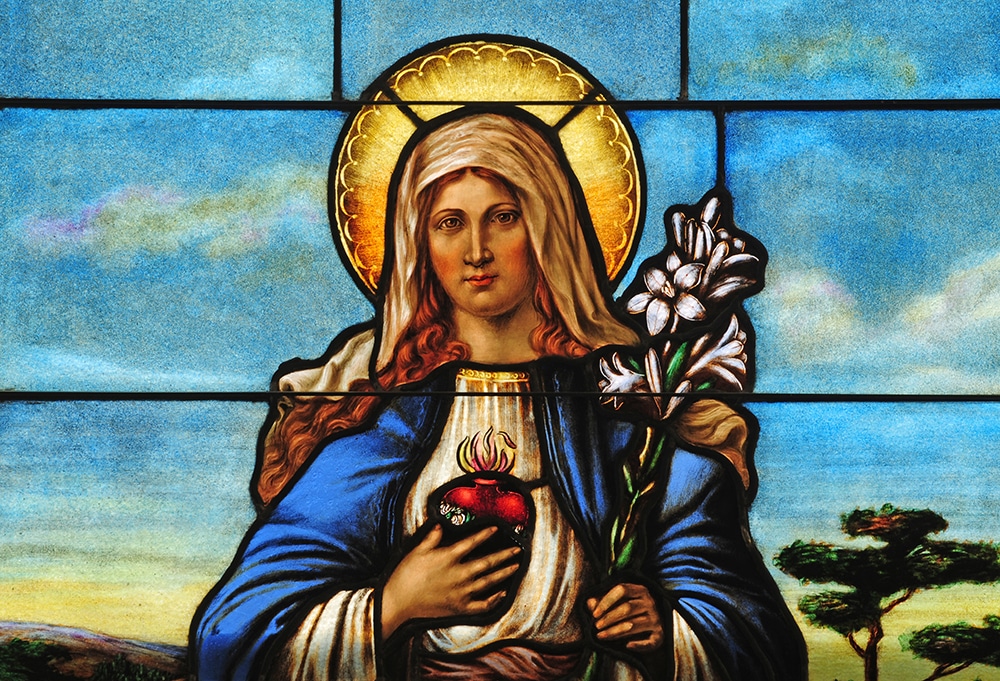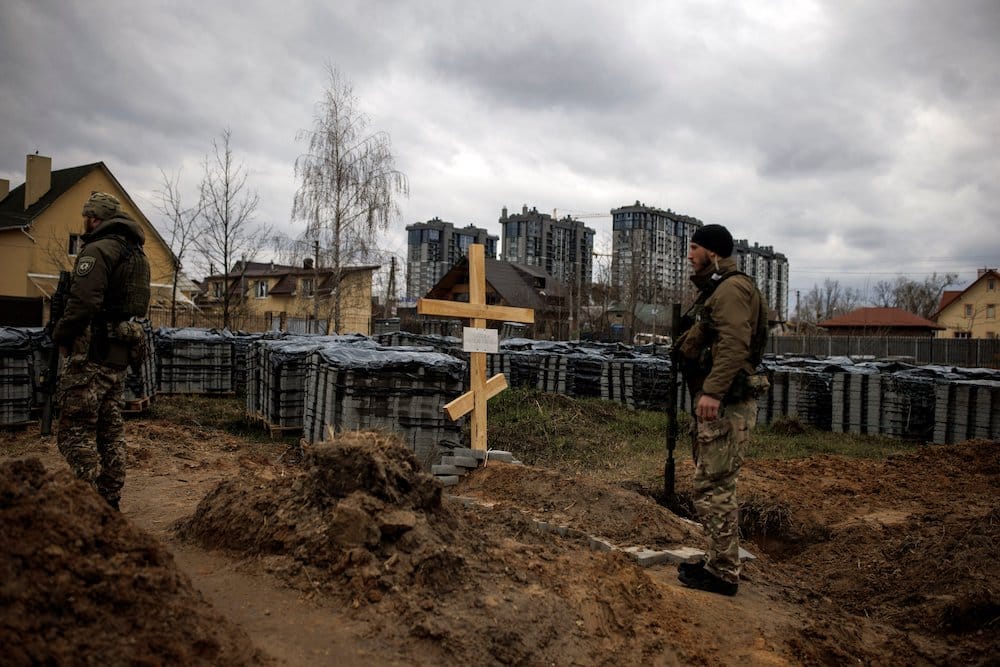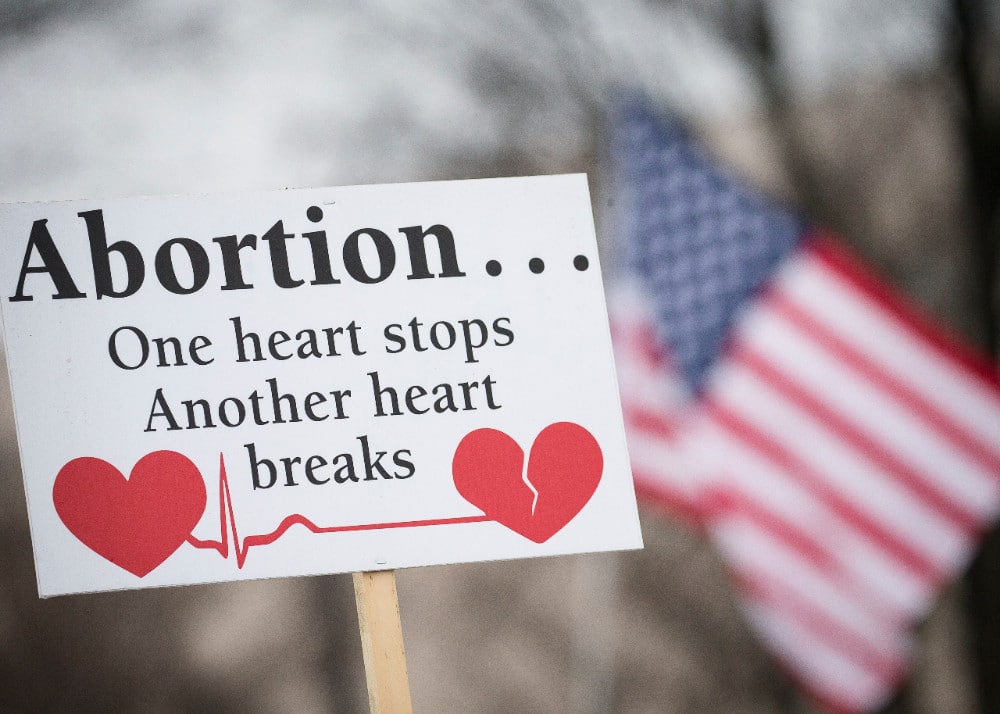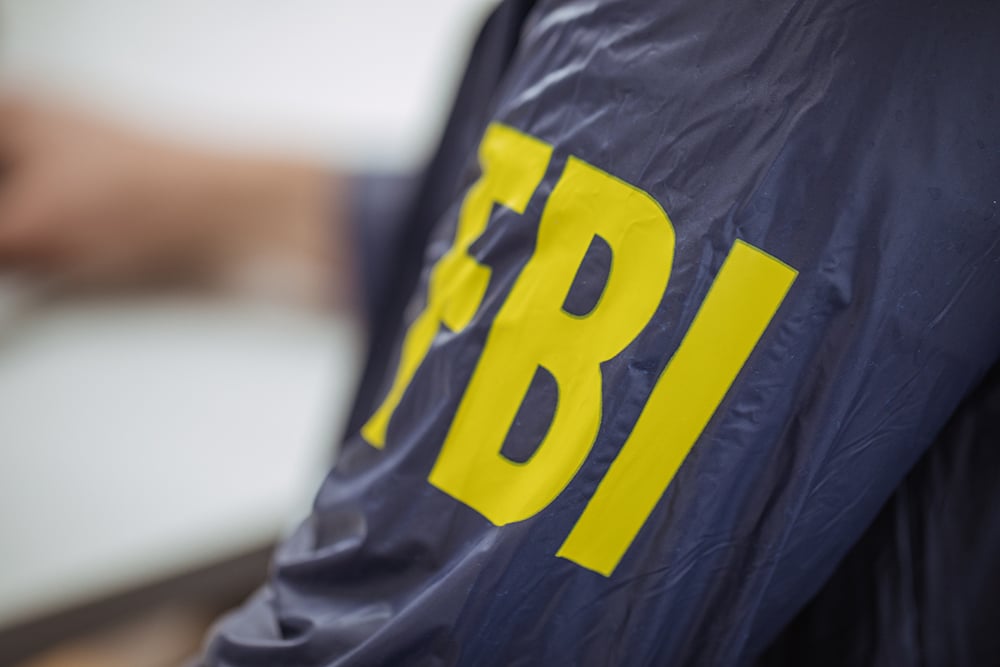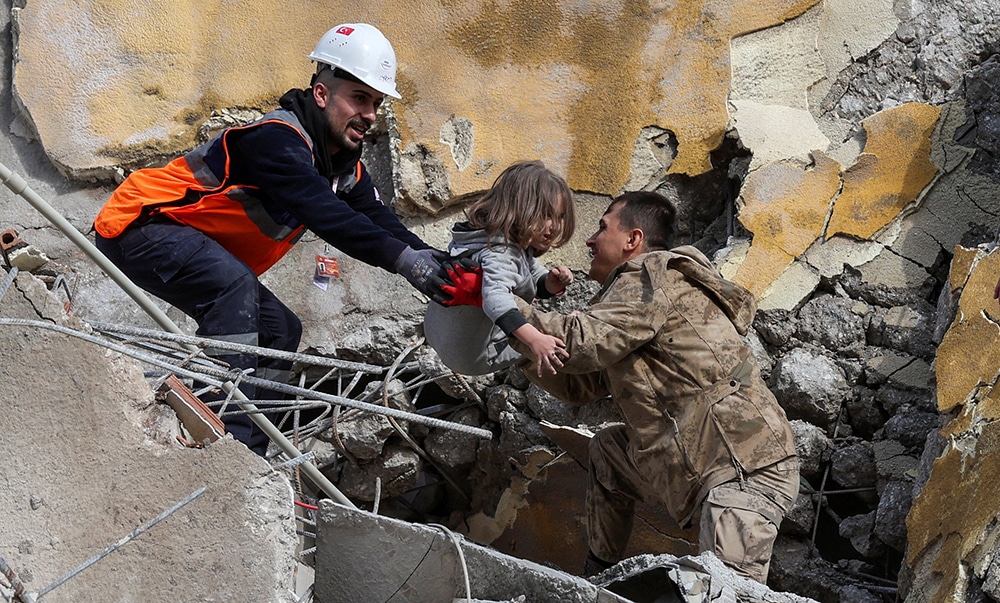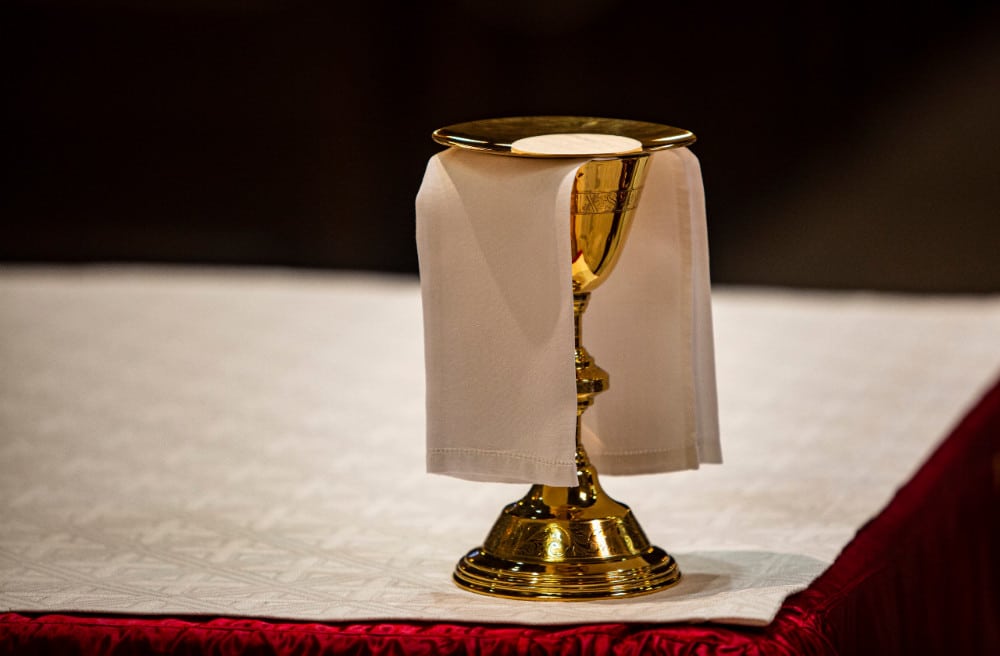 Question: I wonder why the Morning Offering prayer that I’ve been saying since I was about 12 years old begins with the words, “O Jesus, through the Immaculate Heart of Mary.” I know why we add, “through Christ Our Lord” to other prayers, but why “through the Immaculate Heart of Mary”?
Question: I wonder why the Morning Offering prayer that I’ve been saying since I was about 12 years old begins with the words, “O Jesus, through the Immaculate Heart of Mary.” I know why we add, “through Christ Our Lord” to other prayers, but why “through the Immaculate Heart of Mary”?
— Richard Moore, Covington, Louisiana
Answer: When praying to God the Father, it is customary to pray through Christ Our Lord. When praying to Jesus, however, many Catholics pray through the intercession of our Blessed Mother. The prayer you cite, praying through the Immaculate Heart of Mary, is a version of this. The practice emerges from the Gospel of John at the wedding feast at Cana. Mary is able to prevail upon Jesus, though, at first, he seems unwilling to make wine for the wedding. After her entreaty, he not only makes it, but he makes it in abundance. Mary’s role as a powerful intercessor has long been sought and rewarded. In terms of Mary’s heart, there is no heart more pure or more tuned to her son’s heart. She knows his will and just what to ask — and how. No one can have a greater intercessor with Jesus.
Spiritual hierarchy
Question: Are humans above or below the angels in the hierarchy of heaven?
— George Convery, Mt. Clemens, Michigan
Answer: In terms of our received nature, we are lower than the angels (cf. Heb 2:7-9; Ps 8:5, 6). They have superior intellects and many powers beyond ours. They are also our guardians and are due our respect and obedience (Ex 23:20; Ps 91:11). However, in terms of grace and what Christ has established for us, we gain a kind of ascendency. As members of Christ’s body, we are to be seated with him at the right hand of the Father. Christ, of course, is superior to all the angels and, through his incarnation, has elevated us and given us a special dignity that he acquired for us. Paul’s letter to the Hebrews says, “For to which of the angels did God ever say: ‘You are my son’ … And again, when he leads the first-born into the world, he says: ‘Let all the angels of God worship him.’ … But to which of the angels has he ever said: ‘Sit at my right hand until I make your enemies your footstool’?” (Heb 1:5, 6, 13). Hence, when we are made members of the Body of Christ through baptism, we acquire these salutations as well and will share in them fully in heaven. St. Paul says, “Do you not know that we will judge angels?” (1 Cor 6:3). For now, we do well to accept the authority of the angels over us so that they may guide and protect us as God has determined. But, we can conclude that as members of Christ’s body will have a higher rank than angels in the kingdom of heaven given what has been already said. This is only by the sheer grace of Jesus in joining us to his body. But, in terms of natural capacity, angels have a nature that is superior to ours.
Dying
Question: When a person is terminally ill, do they sense that mortality is approaching shortly or moments before the veil lifts and the soul leaves the body?
— Richard Mackin Jr., Millinocket, Maine
Answer: There does seem to be some awareness exhibited by many of the dying that death is approaching. This is confirmed by many family members who spend time with dying relatives. It is also confirmed by health care workers and others, such as priests, who visit the dying. The awareness often grows in stages. At first, the dying become increasingly aware of other presences or persons in the room. It is unclear to them who they are and they will ask, “Who is that next to you? … Who is that over there?” As things progress they will often see family members who have died and might ask, “Why is Aunt Polly here?” At other times, they may actually hear or converse with the dead, or sense angels in the form of light. Sadly, too, some are frightened by what seems to be a demonic presence. These sorts of things do not always happen, but they are frequent enough to be considered a normal part of the dying process and are not merely delusional. Some who care for the dying refer to it as “seeing to the other shore” or “seeing beyond the veil.” It seems to be evidence of life beyond or death from this world and, as such, is confirming of faith and usually consoling as well.
Msgr. Charles Pope is the pastor of Holy Comforter-St. Cyprian in Washington, D.C., and writes for the Archdiocese of Washington, D.C. at blog.adw.org. Send questions to msgrpope@osv.com.

